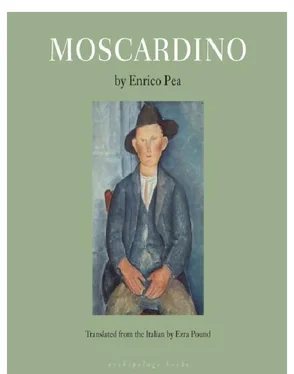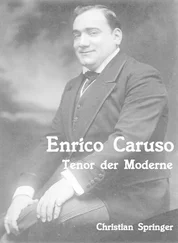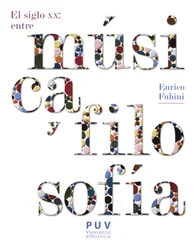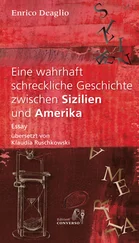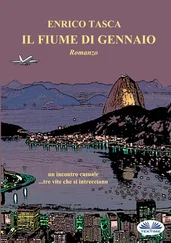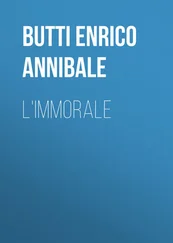Greyness, rain without clatter.
The sky is hooded over as far as the sea, seemed held up like a canopy by the mountains that edge the horn of Seravezza.
The tapers of the Misericordia crowd in along the walk that is paved with thin bricks, a thick cloud of smoke a bit above hooded heads.
When they had got the coffin onto their shoulders, it looked like a burning bier on four pillars, black pillars, quenched with the rain and suffocated with a dark brown cloth with metal corn tassels at the four supports almost unraveled in yellow.
The coffin moved thus down the steep lane, and behind it Don Lorenzo bareheaded, and the women with the brass lanthorns. The smoke of the torches hung in the air, tarnished the window panes, crept into the house, sticky, resinous, heavy.
Don Lorenzo is now in front of the coffin and stares at his mother in her silk dress, with her hands crossed on her breast, shackled by justice forever, her head bound, her mouth closed, one eye just a bit open.
They lift her from the litter by cords.
She is stiff.
They box her up like a bit of merchandise, put a double turn of rope round the casket and lower her into the grave as into a ship’s hole.
The ropes are pulled up. They must be used again. They scrape against the rim of the casket with a dull sound of fraying, like pulleys of a crane.
Don Lorenzo’s shoes were laced crooked with twine with mud on the ends at the low knot, and caked round the edge of his soutane, black stockings and silver buckles. He felt the water dripping down his sides from his hair, his face wet with rain and tears.
The hole swallowed back the loose earth. It looks as if yeast were swelling it up; puffing it over the edges of a garden flowered with paper, cotton and wire.
Don Pietro Galanti, family guardian, took possession of the estate. A vineyard on Ripa Hill, two bits of wood at Giustagnana, a spur of hill whose sub-soil contained a hidden vein of marble, graded “White P.” The hope of the family.
The surface was rented to a charcoal burner for the time being.
Four houses at Seravezza, an olive yard and a field at Bonazzera, three olive yards at Pozzi, four farms at Cugnìa di Querceta, two poplar plantations and seven meadows at Puntone, Stroscia, Ranocchiaio, and Cinquale.
A life allowance of four hundred dollars (scudi) a year to a “legitimate son who takes holy orders.”
Inventory of furniture, kitchen copper and household linen.
All entrusted to Sabina, Don Pietro’s servant who is surety for her and keeps the keys of the house.
Grumpy got better. Sleeps now and again with Sabina.
Cleofe weaned the baby, anointing her teats with bitter aloe.
Don Pietro was deaf, he was seventy-one with a few smooth grey hairs more or less oily hung over his ears and straggled over his low forehead with three serpentine wrinkles scarcely showing in the thin olive hide.
Prolix by nature, knobby of nose he shaved his dry face daily. On Fridays he distributed alms to the poor of his parish lined up according to the sexes right and left before his front door on the side toward the mountain where the sun never comes in winter.
Not far from the house the mountain sweats; smooth grottoes cut in under the cliff with fungus-covered crevices, the sweat freezes with incredible icicles at its edge, exuded tears formed into glass work, as if the high altar were inverted by conjury candles without flamelets but lit from inside with prodigious transparency.
If a few wooden goats had climbed onto those blackish cavities, a shepherd with a crook and a brigand’s hat, it would have made a grot-toed presepio to be boxed in behind glass.
Not until April when the rain is tepid and the hollow under the cliff is warmed by the sprouting moss and by other delights of God invisible to us do the fantastic candles wholly drop off and the shadows cease to play in magic luminosity.
In April after the brief rains, the sky clears, the incredible glass work melts from the hills, carrying rotten leaves with it, the grottoes are washed and retinted. The pebbles of the walks are yellowed with mud, the feet of the poor therewith splashed. The rope sandals have lost their heels and the soles worn to a frazzle from being used all the winter.
Don Pietro Galanti considered his poor, saw them as souls in purgatory that see God and remain in torment, half in joy half in sorrow.
Don Pietro’s poor have their feet in the mud and wait to be un-famished by providence, the sky is clear and nightingales are making new nests, the peach trees reflower and the orange trees in the gardens of the rich are pearled with new white blossoms.
Don P.G. opened his door at ten A.M. every Friday. He pauses a moment on the threshold to make quite sure there are no infiltrations of poor from outside his parish limits.
Then he emerges with his cloth purse containing the chicken feed.
The men lift their hats, the women stretch out their hands, “God reward you in paradise” was the usual verbal manifestation of gratitude, when not augmented by other explanations, excuses, after the admonitions inseparable from the eleemosynary act.
Don P.G.’s gabble annoyed the women particularly and he was specially and nauseously longwinded with widows. He required peculiar religious observance and exemplary conduct from widows.
On Sunday Don Pietro said the ten o’clock mass and his poor flocked to the balustrade, otherwise no hand-out the following Friday.
He came slowly out of the sacristy so as to have time to count his poor. The altar boy meanwhile put the missal on the reading stand, set out the cruets of water and wine, and stood patiently at the foot of the altar steps chewing over joyously the next week’s freedom consoling himself with the idea that the next week’s longwindedness would fall on the junior clerk his companion.
Ten o’clock mass in San Lorenzo at the altar of the warrior saint Discoglio lasted an hour, invariably. That is until the start of the other mass said by Don Caesar, the other thin priest. Don Pietro’s opposite in temperament and in habits.
Don Caesar sang out of tune, had no manners, loose-jointed as the sandy cat from the nun’s pharmacy, he loped up the altar steps, his head moving on springs, his hooded eyes blinking against the candle light trying to find the rubrics in the missal, in fact rather like the royal blackbird in the Piazza butcher shop, pecking at the raw tripe which its owner stuffed through the wire bars of its cage.
Don Caesar thin, tobacco stained, choleric, bungling, liberal, untidy, boozy, impatient at the door of the sacristy, his legs nervous, and tapping his heels on the stone step near the bell tower, with his eye glued on the altar of the warrior saint Discoglio, awaited for Don P.C. to get to the Salveregina and leave room at the altar.
The little bell for Don Caesar’s mass broke in without manners on the opening words of Don P.G.’s Salveregina, and shocked the sensibilities of Don Pietro who despite his deafness always heard the bell and felt as if it were a set of rude words addressed to him personally, and thought within himself of blasphemy and the sin of him who approacheth the altar fasting but with his heart full of wrath and presumption.
They passed midway before the High Altar, one with his eyes sparkling with hurry, the other lowering his so as not to look at him, and seeming to nod to each other as they both bent head and knee before the sacrament of the Most High.
Don Lorenzo, the abbé, was not an ordained priest and did not come in for the annuity.
He had been to the seminary before his father’s death but had forgotten whatever scraps of Latin had been poked into his block. He had even forgotten the Paternoster and the Salveregina and when he served at mass he mumbled at random clucking in his throat like the women of the people when they try to join in the Latin litany.
Читать дальше
